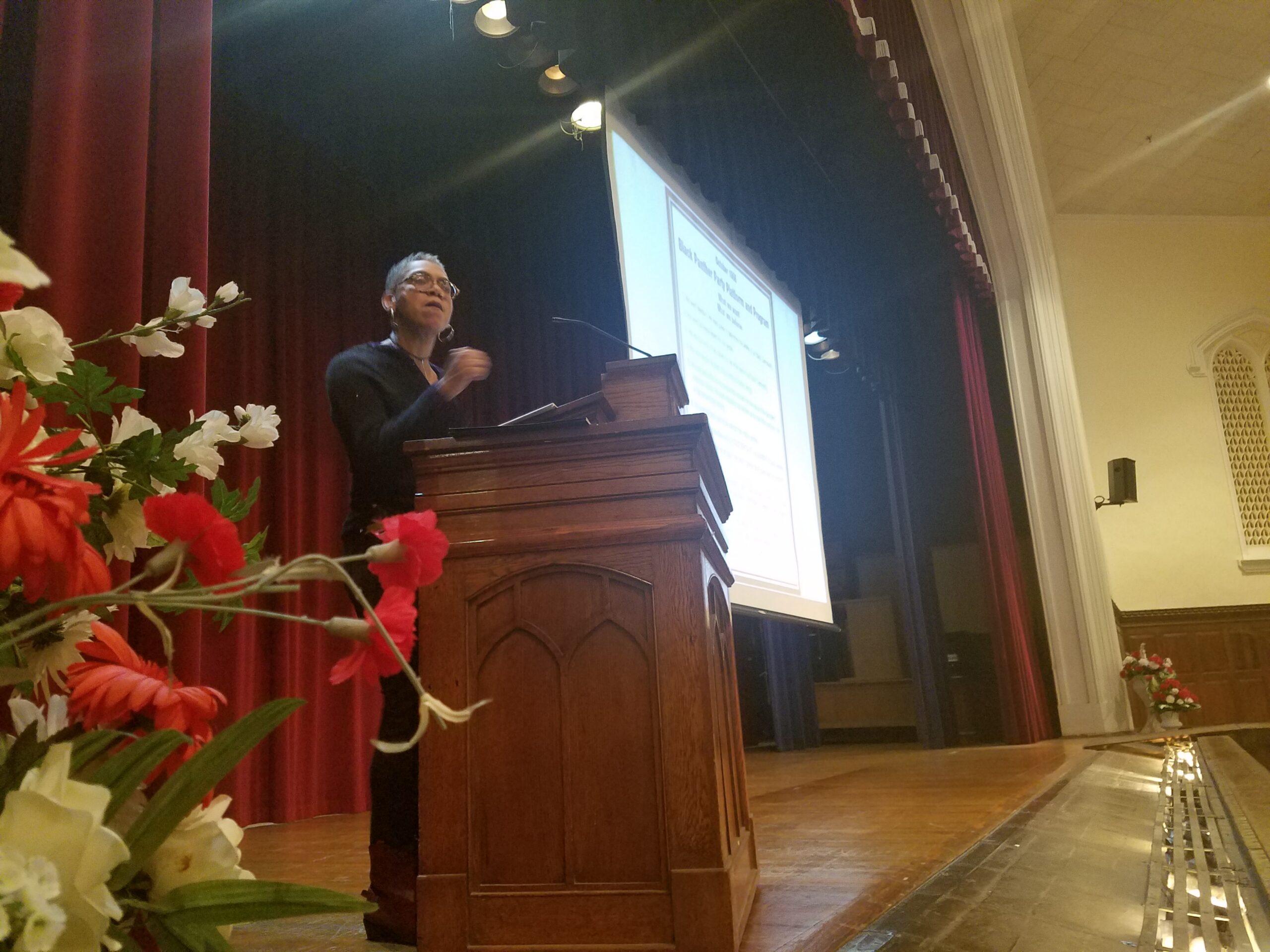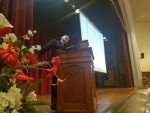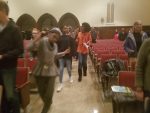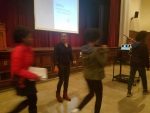By Kyeland Jackson —
Professor and historian Rhonda Williams said she was a teen riding a bike in her neighborhood when an officer took her in his car, paraded her in front of white residents and denigrated her mother as he dropped her off in her neighborhood. Years later, after being told her journalism was “too blacked-up,” and after an officer said she had no rights as a black person in America, Williams devoted her research to black lives and the disparities among races in America.
As part of U of L’s Anne Braden Institute for Social Justice Research lecture series, Williams spoke at DuPont Manual High School about struggles in this century.
Williams said many American systems disadvantage black men and women.
“The evidence, it is there historically,” Williams said, later recalling a tour she took on a historic plantation.“I am on a plantation in a house where there’s a picture of a black woman in a parlor … it seems odd to me I’m on a plantation and I’m not really hearing about enslaved black people.”
Williams said the social creation of black peoples’ roles helped entrench systematic racism in America. Lesser roles would be given to blacks, and those who’s did not fit those roles were deemed dangerous. Pointing to pictures of Trayvon Martin, a black teen fatally shot by a neighborhood watch volunteer, and Sandra Bland, a black woman found hanged in a cell days after a traffic stop, Williams said being placed in that role can be deadly.
“We want and need an end to police brutality,” Williams said. “It is how we imagine ourselves and those not us, no matter where we sit, that undergirds the narratives molded into inequality.”
That inequality, Williams said, is at the institutional level too. She cited evidence of institutional racism in American government, schools, tourism, health and policing. Some evidence arises from a lack of care, as Williams pointed to ignored medical needs, food requirements and other health concerns as a form of violence against black people. Discussion and historical knowledge, Williams said, can help mend racial tensions.
- Williams danced, sang and marched while delivering her lecture
- Students and attendants gathered to march around the gym as Williams played a song concerning social justice
- Williams directs dancers and marchers, encouraging audience participation
Williams’ discussion arrived days after questions of racism were leveled at Louisville high schools. One incident involved a student who was detained, kicked and tased at Jeffersontown High School. Officers allege the student struck the officer, leading to the tasing. Another incident involved Manual High School’s principal, who allegedly made racist remarks while talking with black students.
Manual High School senior Akwelle Quaye and junior Kyra Welch said it was good to see a black woman speak. Both are part of the school’s black student union, and Welch said students should care to see representation.
“If you see other black people doing well, it’s going to encourage you to do well,” Welch said. “It’s a symbol of power that people should support … there’s something about a woman who’s doing great and trying to educate people — that people actually listen to — that grabs peoples’ attention.”
U of L Arts and Sciences Dean Kimberly Kempf-Leonard attended too. Kempf-Leonard said social justice is important in America now, and urged university students to broaden their perspectives
“Our students, I think, really need to be exposed to people beyond our campus,” Kempf-Leonard said. “The mission of our campus includes being advocates for social justice, so I think that its very important that students get that foundation.”
William’s appearance caps the Anne Braden Institute’s 11th lecture on U.S. civil rights movement history. The lecture series has drawn John Powell, Carol Anderson and Angela Davis. Davis, a famed political activist and professor, brought more than 800 people to Papa John’s Cardinal Stadium when she spoke last year.
Photo by Kyeland Jackson / The Louisville Cardinal







